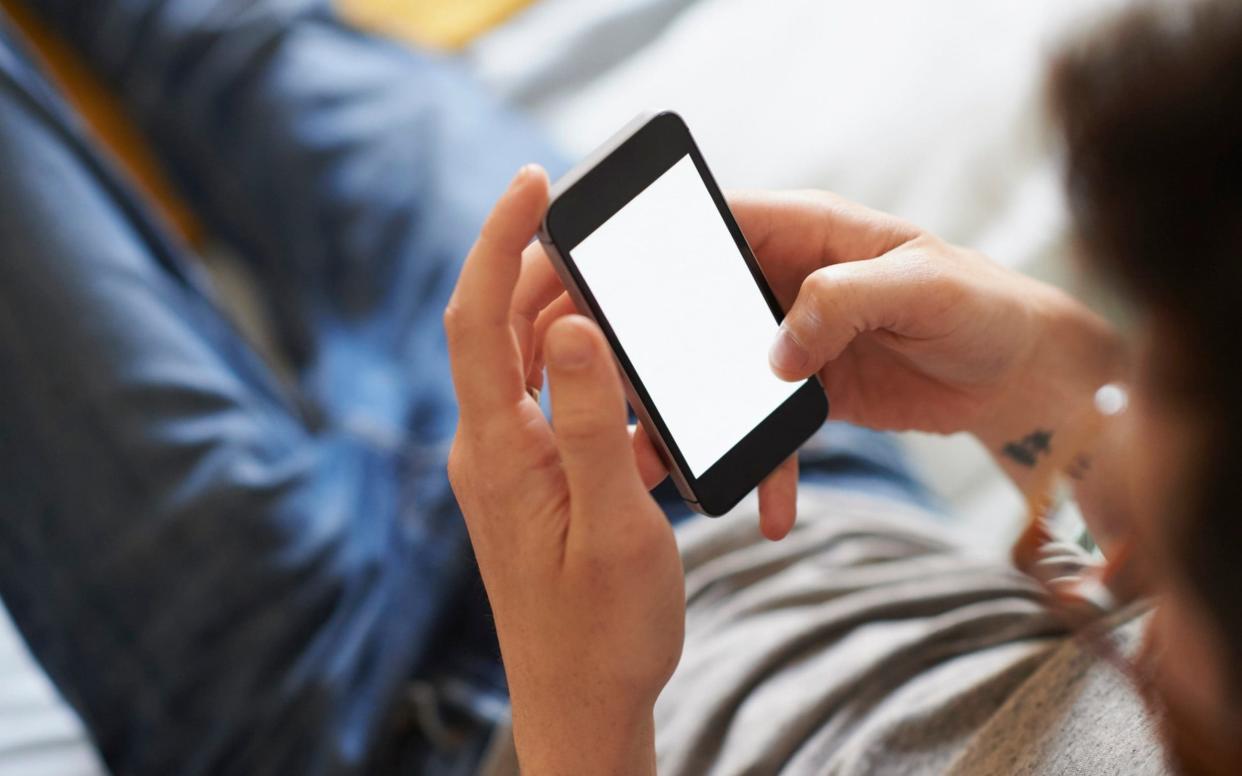How to tell if you are truly addicted to your smartphone

Every week, Apple sends a shame-inducing “digital wellness” report to iPhone users detailing exactly how many hours they’ve spent hooked on their smartphones.
It’s designed, Apple claims, to curb our growing addiction to technology. Each notification, phone “pick-up”, call and message is recorded, as is the exact number of minutes spent on different apps. For those of us who rely on our phones, or want to track our child’s technology use, it can make for alarming reading.
The problem with Apple's digital wellness report is that there is no pop-up warning label on the iPhone telling users that perhaps 18 hours on Twitter a day is at least five too many, or that unlocking their phone every three minutes is ruining their life.
It also doesn't let anyone see how they compare to anyone else. No one is privy to the global trends that Apple engineers collect. Users are measured on their own prior behaviour, with pithy messages such as "you spent 26pc less time on your phone this week".
Is that good, bad or average? And how much screen-time is too much?
The research here isn’t clear. A study published in September by the University of Ottawa found children who spend more than two hours a day looking at a screen have worse memory, language skills and attention span. For adults, too much screen time has been linked to depression and anxiety.
Yet a wave of new studies are challenging the long-held orthodoxy that screen-time should be avoided: some, it claims, might even be of benefit.

According to Parenting for a Digital Future, a report from the London School of Economics published in March, children who consume digital media heavily aren’t necessarily doomed to feeling isolated and depressed. In fact, smartphones can help to bring families together, by allowing, for instance, parents to use messaging apps with their children.
“We found that parental concern about placing limits on ‘screen-time’ was far higher than concern about the nature of the content their kids were engaging with,” explains Dr Alicia Blum-Ross, the paper’s co-author. “Instead of worrying about a set time-limit, I’d encourage parents to think: are they learning? Is it helping them engage with their world?”
In the UK, guidelines set out by the National Institute for Clinical Excellence (NICE) suggest there should be no more than two hours’ leisure screen time per day for children of any age. In the US, it is recommended that under-twos should have no screen time at all. Thereafter, the maximum amount of leisure screen time should be two hours per day.
There is no adult equivalent for screen-time recommendation given to children. But experts say there are still ways to tell whether your smartphone use has soured.
A red flag should appear when people think screens get in the way of their lives, according to Dr Bob Patton, lecturer of clinical psychology at the University of Surrey. Apple’s digital wellness reports could provide a "wake-up call" for someone that idly uses their phone all the time for no reason.
"The physical act of looking at a screen for long periods of time can have longer term implications, but what you are doing on those screens is equally as important," Patton explains. "We need to be mindful that just because we have tech doesn't mean we have to use it all of the time.”
The lack of “mindful” use of technology, particularly among teenagers, is one of the most worrying aspects of smartphone addiction. A recent study found teenagers are spending up to 12 hours online a day mindlessly swiping through social media without looking at any single piece of content for more than a few seconds. Adults, too, could fall into the same trap.
"The big difference is whether you are using it [your smartphone] for what you want to, or whether you are unconsciously using it all the time,” says Professor Andrew Przybylski, experimental psychologist and director of research at Oxford Internet Institute.
Professor Przybylski warns against buying into the “moral panic” against technology. "In 10 years from now we are going to talk about if AI toys are going to be the death of friendship," he says. What we really need to be concerned about is not how much time we spend on our smartphones, but what we’re using our smartphones to do. So shut off your phone when you sleep. Make sure your phone isn't stopping you from doing your job, or the things that you love. And more importantly, don’t think too much about the fact that Apple has managed to create the perfect addiction ouroboros: prompting users to check their iPhones to find out just how much they constantly check it anyway.



